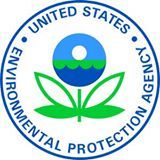Testing of water samples in the Cape Fear River Basin in Southern North Carolina revealed contamination from PFAS chemicals 14 times greater than limits advised by the U.S. Environmental Protection Agency (EPA).
Called “forever chemicals,” PFAS chemicals are used in applications including firefighting retardant and Teflon nonstick cookware, and they can last in the human body for decades. A report in North Carolina Health News called the findings "staggering."
In a document recently released by the North Carolina Department of Environmental Quality (DEQ), water samples were found to contain perfluorooctanesulfonic acid, or PFOS, measuring 1,000 parts per trillion. The impacted area of the state extends from Reidsville to Wilmington.

The highest level of total PFAS detected was in Sanford, which registered 4,026 parts per trillion. The community of Burlington was the second highest in contamination with nearly 2,296 parts per trillion, according to N.C. Health News.
The measurements were taken by water quality officials last summer. The Washington D.C.-based Environmental Working Group recently tested tap water at 44 locations in 31 states and found measurable amounts of PFAS chemicals at all but one site.
The highest level recorded in the national study was 186 parts per trillion at an elementary school in North Carolina's own Brunswick County, Health News reported. Brunswick County gets its drinking water from the Cape Fear River.
Scientists are still studying the health effects of ingesting PFAS chemicals and though no consensus has yet been reached, it is suspected long-term exposure to the chemicals can cause testicular and kidney cancer, developmental effects to fetuses during pregnancy, low birth weight, liver and thyroid disease, antibody production, high cholesterol and ulcerative colitis.
PFAS chemicals in North Carolina are currently unregulated and make their way into the state’s drinking water from chemical discharge by industry into waterways and sewers. The DEQ has begun a monitoring program at 25 municipal wastewater treatment plants as a way to identify the amount of the chemicals flowing into the sewer treatment plants and pinpoint which industries are polluting.
Industrial companies that discharge chemicals are being asked by letter to monitor releases of PFAS and a related chemical called dioxane. Reporting requirements went out to 19 North Carolina companies. Completion of monitoring reports was expected late last month.
Contamination from PFAS chemicals has become a major issue nationwide and hundreds of lawsuits have been filed against companies including 3M and DuPont.


 Alerts Sign-up
Alerts Sign-up